I have a memory leak with TensorFlow. I refered to Tensorflow : Memory leak even while closing Session? to address my issue, and I followed the advices of the answer, that seemed to have solved the problem. However it does not work here.
In order to recreate the memory leak, I have created a simple example. First, I use this function (that I got here : How to get current CPU and RAM usage in Python?) to check the memory use of the python process :
def memory():
import os
import psutil
pid = os.getpid()
py = psutil.Process(pid)
memoryUse = py.memory_info()[0]/2.**30 # memory use in GB...I think
print('memory use:', memoryUse)
Then, everytime I call the build_model function, the use of memory increases.
Here is the build_model function that has a memory leak :
def build_model():
'''Model'''
tf.reset_default_graph()
with tf.Graph().as_default(), tf.Session() as sess:
tf.contrib.keras.backend.set_session(sess)
labels = tf.placeholder(tf.float32, shape=(None, 1))
input = tf.placeholder(tf.float32, shape=(None, 1))
x = tf.contrib.keras.layers.Dense(30, activation='relu', name='dense1')(input)
x1 = tf.contrib.keras.layers.Dropout(0.5)(x)
x2 = tf.contrib.keras.layers.Dense(30, activation='relu', name='dense2')(x1)
y = tf.contrib.keras.layers.Dense(1, activation='sigmoid', name='dense3')(x2)
loss = tf.reduce_mean(tf.contrib.keras.losses.binary_crossentropy(labels, y))
train_step = tf.train.AdamOptimizer(0.004).minimize(loss)
#Initialize all variables
init_op = tf.global_variables_initializer()
sess.run(init_op)
sess.close()
tf.reset_default_graph()
return
I would have thought that using the block with tf.Graph().as_default(), tf.Session() as sess: and then closing the session and calling tf.reset_default_graph would clear all the memory used by TensorFlow. Apparently it does not.
The memory leak can be recreated as following :
memory()
build_model()
memory()
build_model()
memory()
The output of this is (for my computer) :
memory use: 0.1794891357421875
memory use: 0.184417724609375
memory use: 0.18923568725585938
Clearly we can see that all the memory used by TensorFlow is not freed afterwards. Why?
I plotted the use of memory over 100 iterations of calling build_model, and this is what I get :
I think that goes to show that there is a memory leak.
